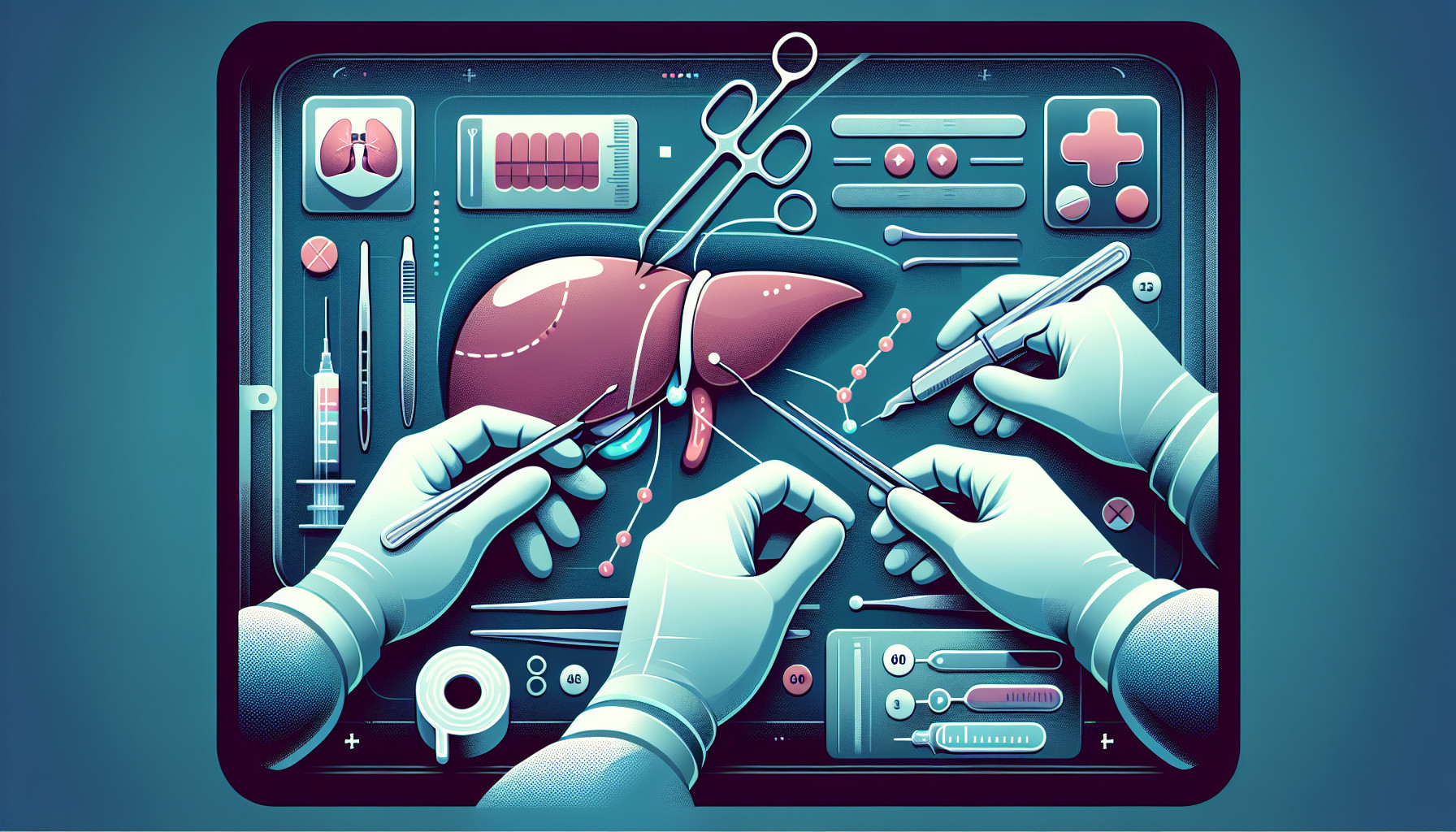Our Summary
This research paper is about two medical procedures, hepatic vein catheterisation (HVC) and transjugular liver biopsy (TJLB), which are used to measure portal pressure and diagnose liver diseases respectively. They looked at medical records of 209 patients who underwent 277 of these procedures over a four-year period. They found that the most common reasons for performing HVC were to monitor the effectiveness of certain drugs (betablockers) and to make diagnoses. TJLB were done for diagnostic and research purposes.
The study also looked at the complications that occurred within 30 days of the procedures. They found that complications were rare and usually minor, such as pain and temporary heart rhythm problems after HVC. There were four serious complications after TJLB, all related to bleeding, which required hospital admission. However, there were no deaths related to these complications. The researchers concluded that both procedures are generally safe.
FAQs
- What are the common reasons for performing hepatic vein catheterisation (HVC) and transjugular liver biopsy (TJLB)?
- What complications can occur after HVC and TJLB procedures?
- How safe are HVC and TJLB procedures according to the research?
Doctor’s Tip
A helpful tip a doctor might tell a patient about liver biopsy is to inform them that complications are rare but can include minor issues such as pain and temporary heart rhythm problems. It is important for the patient to follow post-procedure instructions carefully and contact their doctor if they experience any unexpected symptoms or complications. Additionally, the doctor may advise the patient to avoid certain medications or activities before the procedure to reduce the risk of complications.
Suitable For
Patients who are typically recommended for liver biopsy include those with:
- Liver diseases such as hepatitis, cirrhosis, or fatty liver disease
- Elevated liver enzymes or abnormal liver function tests
- Suspected liver tumors or masses
- Monitoring of liver disease progression or treatment effectiveness
- Evaluation of unexplained liver abnormalities or symptoms
- Assessment of liver damage from alcohol or drug use
- Diagnosis of autoimmune liver diseases
- Evaluation of liver transplant rejection or complications
Overall, liver biopsy is recommended for patients who require a definitive diagnosis or assessment of liver health and function. It is important for patients to discuss the risks and benefits of the procedure with their healthcare provider to determine if it is appropriate for their specific medical condition.
Timeline
Before liver biopsy:
- Patient undergoes initial consultation with a healthcare provider to discuss the need for a liver biopsy and the risks and benefits of the procedure.
- Patient may undergo blood tests, imaging studies, and other diagnostic tests to assess liver function and determine the need for a biopsy.
- Patient may be instructed to avoid eating or drinking for a certain period of time before the procedure.
- Patient may receive sedation or anesthesia before the biopsy to help manage pain and anxiety.
After liver biopsy:
- Patient is monitored closely for a few hours after the procedure to check for any immediate complications.
- Patient may experience some pain or discomfort at the biopsy site, which can be managed with over-the-counter pain medication.
- Patient may be advised to avoid strenuous activities for a few days after the biopsy to allow the liver to heal.
- Patient may need to follow up with their healthcare provider to discuss the results of the biopsy and determine any further treatment or monitoring that may be needed.
What to Ask Your Doctor
- What is the purpose of the liver biopsy procedure?
- How will the biopsy be performed and what can I expect during the procedure?
- What are the potential risks and complications associated with a liver biopsy?
- Will I need to make any special preparations before the procedure?
- How long will it take to receive the biopsy results?
- What will the biopsy results tell us about my liver health and condition?
- Are there any alternative diagnostic tests or procedures that could be considered instead of a liver biopsy?
- How frequently will I need to undergo liver biopsies in the future, if at all?
- What follow-up care or monitoring will be required after the liver biopsy procedure?
- Are there any specific restrictions or limitations on my activities following the biopsy?
Reference
Authors: Hansen N, Fialla AD. Journal: Dan Med J. 2023 Dec 18;71(1):A06230413. PMID: 38235984
